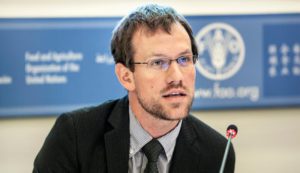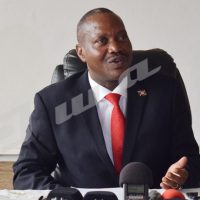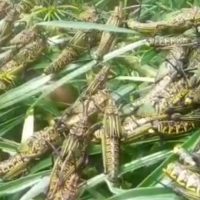In a round table meeting about rural development in Burundi organized by the EU and different experts in the agriculture sector, the European Union representatives say the organization has been involved in the agricultural sector but found it difficult to develop it because of the growing population and unclear policies.

Gianpietro de Cao: “The European Union does not take any decision. It rather accompanies government policies”
Salvator Kaboneka, professor at the University, who was among the participants, asked the European Union to put much effort in the development of the agriculture sector. “There are desert countries that are still able to feed their population. The European Union as an international organization should get inspiration from these countries and help Burundi develop this sector,” he says.
Déogratias Niyonkuru, Lecturer at the university and one of the panelists, says“it is not easy to understand how a delay of rain of only one month can make Kirundo province suffer a severe famine,” he says.
Mr Niyonkuru calls on the government and its partners to search for suitable solutions aimed at improving the sector.
Gianpietro de Cao, Programme Officer EuropeAid Food Security, Rural Development, Nutrition in Burundi, says the European Union does not take any decision but rather accompanies government’s policies. “The European Union has been trying to help in the development of the agricultural sector but realized that it cannot succeed alone without government’s clear policies,” says Gianpietro.
The European Union has suspended financial direct aid for the Burundian government in March 2016 after concluding that it had not done enough to find a political solution to the crisis that broke out in 2015. It now concentrates on supporting the population directly not through the government as it used to be.


















 IWACU Open Data
IWACU Open Data

